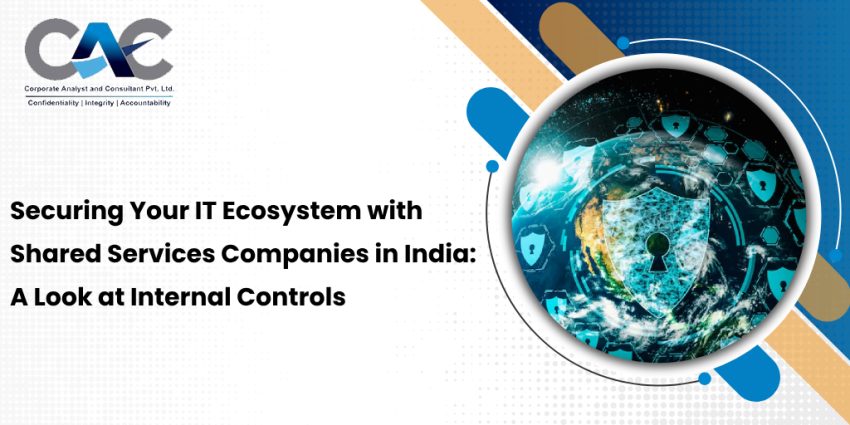Businesses with further expansion are faced with a complicated situation in technology, data, and operations management. Shared services companies in India are gaining interest in several companies so as to streamline business processes and make them more efficient. These companies provide centralized IT, finances, HR among other business functions support. In addition to the efficiency factor, shared services can also contribute significantly in the enhancement of IT ecosystem and making sure that the setup of internal controls is safe and effective within the internal confines.
Understanding the Role of Shared Services in IT Security
India has emerged as a leading global source of shared services publish through the availability of skilled labour, low cost base as well as good IT infrastructure. Shared services companies in India are no longer just used in conducting operations in the business today, but also used as a way of conducting security standards. The companies process sensitive information and maintain vital IT systems, and any threats to such technological environments need to be out of the way.
It is through centralization of IT processes that shared services companies assist organizations in the application of homogenous policies and tools. This will reduce the chances of security loopholes and maintain performance in various departments.
Key Ways Shared Services Companies in India Help Secure IT Ecosystems
1. Standardized Security Policies
The capacity to seal standard IT security policies in all the departments could be reflected as one of the great advantages of operating in India with shared services companies. These policies keep on being updated to be on par with the current standards of compliance and industry best practices. Such consistency contributes to eliminate loopholes which cyber threats may take advantage of.
2. Centralized Monitoring and Alerts
Shared services companies implement centralized monitoring of awareness with respect to the unusual activity within the IT network. Be it intrusion detection, transfer of data peculiarities, or malware detections, such centralized arrangements allow detecting and responding more rapidly. This is especially significant to an age where the cyber threats are becoming advanced.
3. Access Control and Authentication
Internal security depends greatly on managing who can access what. Shared services companies in India deploy robust access control systems that allow only authorized personnel to handle specific data and applications. Multi-factor authentication, identity verification, and user role assignments help in preventing internal and external breaches.
4. Data Encryption and Backup
These companies typically use strong encryption protocols for data in transit and at rest. They also manage regular data backups to ensure business continuity in case of unexpected failures or attacks. With proper backup systems, data recovery becomes quicker and more reliable.
5. Compliance with Regulations
Whether it’s GDPR, ISO 27001, or India’s data protection laws, shared services providers help ensure that businesses remain compliant. They maintain detailed logs and reports, perform regular audits, and guide companies in adhering to regulatory requirements without added pressure on internal teams.
Evaluating the Effectiveness of Your Internal Controls
While shared services providers implement various safeguards, businesses must also evaluate how effective these internal controls are. The following steps can help:
- Periodic Risk Assessments:Conduct regular IT risk assessments to understand where vulnerabilities lie and how well they are being managed.
- Internal Audits:Audit the performance of shared services providers and assess whether internal policies are being followed correctly.
- Performance Metrics:Monitor key indicators like incident response time, system downtime, and audit findings to evaluate ongoing performance.
- Employee Awareness:Ensure that employees understand IT policies and participate in regular cybersecurity training.
Working with shared services companies in India allows businesses to extend their internal control mechanisms while benefiting from expert knowledge and scalable solutions. However, success depends on active collaboration, clear communication, and regular performance reviews.
Final Thoughts
The IT ecosystem is the backbone of every modern organization. With rising threats, securing this ecosystem has become more important than ever. Shared services companies in India offer not just efficiency but also solid frameworks for IT governance and internal control. By leveraging their capabilities, businesses can focus on growth while keeping their systems protected and compliant.
In a digital world, effective internal controls and reliable service partners are essential for lasting success. Choosing the right shared services provider is a strategic move that can protect your business today and in the years to come.
















